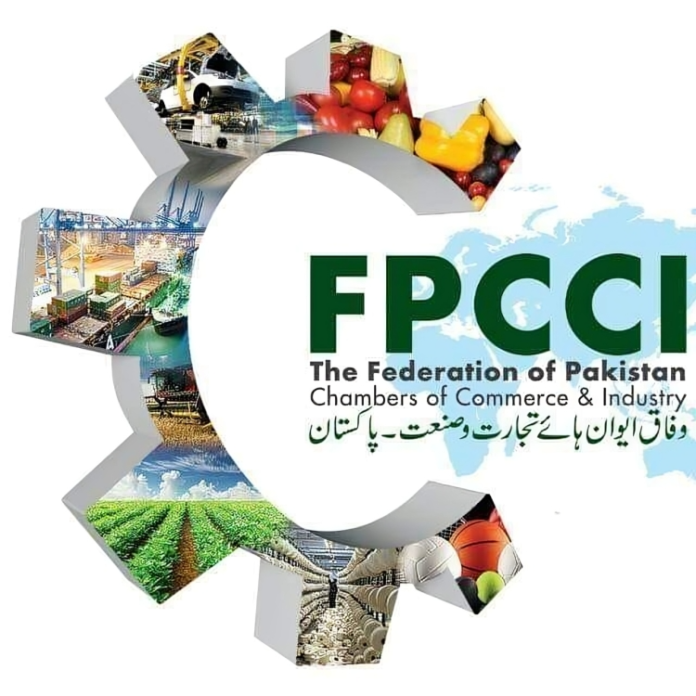The Federation of Pakistan Chambers of Commerce and Industry (FPCCI) have launched the National Economic Think Tank to tackle the nation’s pressing economic challenges and drive long-term growth. This initiative aims to develop long-term strategies to foster sustainable economic growth and ensure the prosperity of the country.
During a press conference held in Karachi, the National Economic Think Tank was unveiled by key industry leaders, including former caretaker Commerce Minister Gohar Ejaz, United Business Group (UBG) head S.M. Tanveer, and FPCCI Senior Vice President Saqib Fayyaz Magoon. The think tank is positioned as a cornerstone for shaping the country’s economic future, integrating expertise from various sectors.
Commerce Minister Gohar Ejaz emphasized the importance of the National Economic Think Tank in tackling economic issues. He announced that former caretaker Prime Minister Anwaar-ul-Haq Kakar will lead the think tank as its president, with former caretaker Finance Minister Shamshad Akhtar serving as its CEO. Bashir Jan Muhammad, a well-respected industrial leader, will chair the think tank.
This collaboration brings together a wealth of experience and knowledge from 40 industry experts, aiming to align the nation’s economic policies with Vision 2030. A key goal is to achieve a 10% annual growth rate while increasing Pakistan’s exports to $100 billion, a target seen as essential for strengthening the economy.
During his address, Gohar Ejaz highlighted policy inconsistency as a primary barrier to Pakistan’s economic development, pointing out that the country’s exports only grew from $23 billion to $27.5 billion over an 11-year span. He stressed that had the nation maintained a 10% annual export growth rate, exports would have reached $60 billion by now, a figure that would have dramatically improved Pakistan’s economic standing in the global market.
S.M. Tanveer, speaking on the occasion, urged for the immediate resolution of issues surrounding independent power producers (IPPs), which have posed significant challenges to the business and energy sectors. He further emphasized that resolving these matters would help ensure energy security and lower costs for industries—a vital component of Pakistan’s economic stability.

At an event celebrating the 31st anniversary of COMEX College in Karachi, Ejaz further demonstrated his commitment to education by announcing the formation of a new board that will help guide national policy-making. He named Shamshad Akhtar as one of the board members, reaffirming her pivotal role in driving the country’s economic agenda. Additionally, Ejaz pledged Rs1 billion toward the establishment of a top-tier university in Karachi, which he envisions as a key step in transforming the city into an academic hub.
Shamshad Akhtar, the CEO of the National Economic Think Tank, laid out the think tank’s mission, which includes identifying key national issues and providing independent policy recommendations. She stressed the importance of fostering public-private partnerships to drive investment, while also advocating for a shift away from government subsidies toward incentive-based models that encourage sustainable economic growth. Shamshad Akhtar noted that such measures would help create a more investment-friendly climate in Pakistan, which is crucial for stimulating both domestic and foreign investments.
Bashir Jan Muhammad, the chairman of the think tank, voiced concerns about the rising cost of electricity, which he identified as the most significant challenge confronting Pakistan’s trade and industrial sectors. He called for immediate reforms to bring down energy costs, which would directly benefit both small and large businesses, enabling them to remain competitive in regional and global markets.
In his concluding remarks, Gohar Ejaz called for a series of comprehensive reforms to elevate Pakistan’s economic stature. He envisioned the country becoming the fifth-largest economy globally, a goal that would require robust policy changes and substantial investments in education and infrastructure.
Also Read: Moody Upgrades Pakistan to Caa2, Signaling Recovery
“The government’s job is not to run businesses, but to create an environment where businesses can thrive,” Ejaz stated, adding that empowering the private sector is critical for long-term economic stability. He reiterated that the National Economic Think Tank will play a crucial role in ensuring that Pakistan adopts the right policies to secure its economic future.


